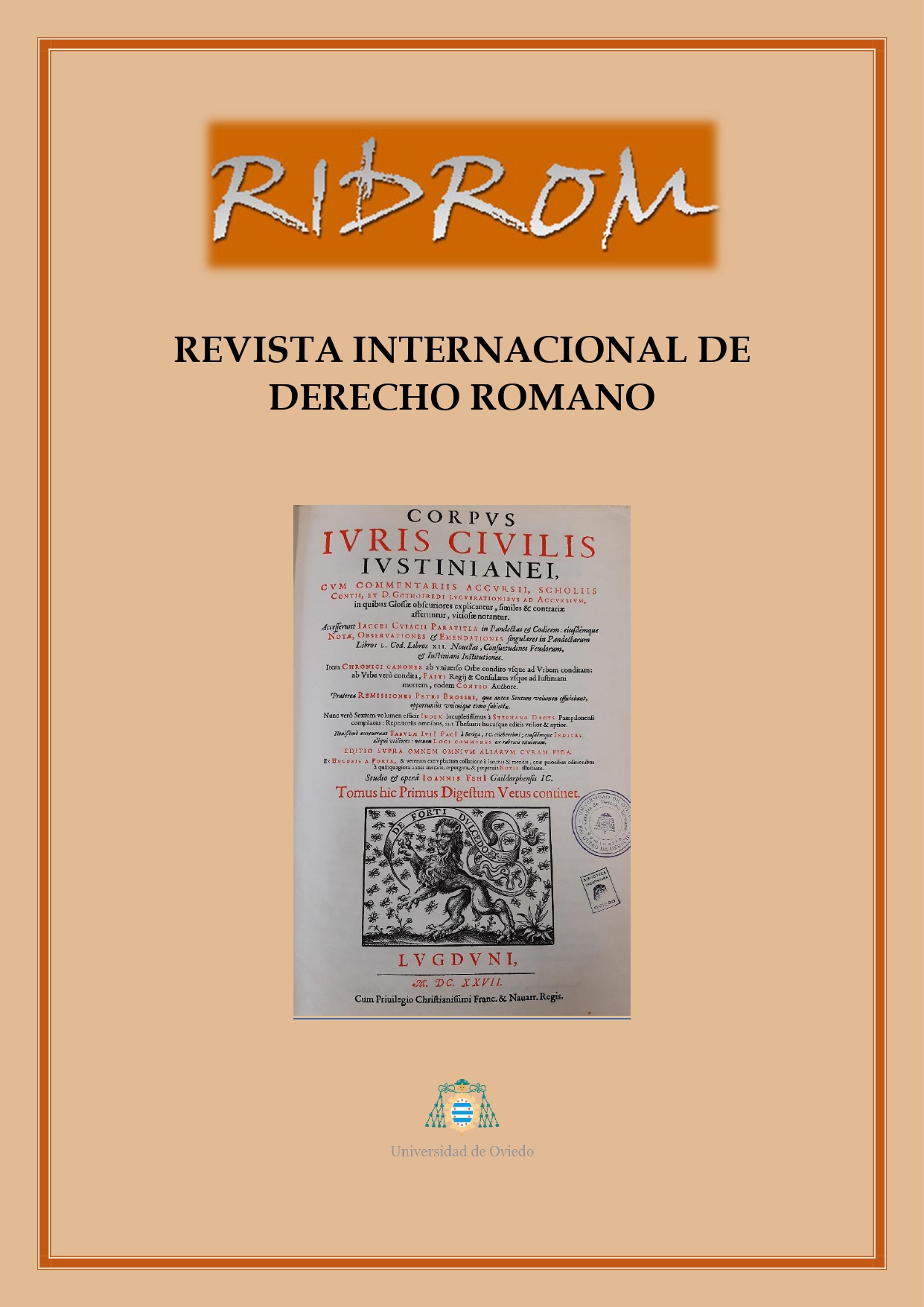Resumo
RÉSUMÉ
Le point de départ de mon travail est un sonnet de William Shakespeare. Ce n’est pas un texte juridique, même si par sa forme, son lexique et son thème, il semblerait s’y apparenter. Ce que l’on peut retenir du poème ce n’est pas seulement l’emploi de termes juridiques comme le gage, l’hypothèque que le droit romain exprimait avec un seul terme : « pignus », mais aussi le fait que la relation obligataire et les différents modes de garantie se convertissent en argument narratif. Le but de mes recherches est de souligner que c’est à Rome que le terme juridique pignus a acquis caractère de topos. Depuis, il fait partie de notre patrimoine épistémologique et linguistique. Quelle est l’ultime conclusion ? : Quand nous verbalisons des relations de sujétion et de dépendance nous le faisons en parlant de « gage » et cela signifie que nous continuons à penser en termes « romains » ; cela signifie que nous pensons en accord avec des catégories, des institutions, des figures du droit romain.
ABSTRACT
The starting point for my work is a sonnet by William Shakespeare. It is not a legal text, even if its form, lexicon and theme seem to resemble one. What we can retain from the poem is not only the use of legal terms such as pledge, mortgage or surety, but also the fact that the obligatory relationship and the various modes of guarantee are converted into a narrative argument. The aim of my research is to highlight the fact that it was in Rome that the legal term pignus acquired the character of a topos. Since then, it has become part of our linguistic and epistemological heritage. What is the ultimate conclusion ? When we talk about relationships of subjection and dependence, we do so in terms of 'pledge', which means that we continue to think in 'Roman' terms. More concretely, it means that we think in accordance with the categories, institutions and figures of Roman law.
KEY WORDS
Pledge, mortgage, pignus, Roman law
Referências
BIBLIOGRAPHIE
BLACK, Max, Models and Metaphors, (Ithaca Cornell University Press, 1962).
BLUMENBERG, Hans, Paradigmen zu einer Metaphorologie, (Bonn, 1960).
DE CHURRUCA, Juan, Pignus, Derecho romano de obligaciones. Homenaje al Profesor José Luis Murga Gener, (Madrid, 1994), pp. 333-386.
FUENTESECA, Margarita, Pignus e hypotheca en su evolución histórica, (Santiago de Compostela, 2013).
GALGANO, Francesco, Le insidie del linguaggio giuridico. Saggio sulle metafore nel diritto, (Bologna, 2010).
LAKOFF, George/JOHNSON, Mark, Metaphors We Live by, (Chicago, 1980).
LLT. Library of Latin Texts, CLCLT-5 (Turnhout, Brepols Publishers, 2002). Enquête dans les vols. I, II et III.
MQDQ Musisque Deoque (Università Ca’ Foscari Venezia, Calabria, Federico II Napoli, Parma).
PHI Latin Text (The Packard Humanities Institute).
PIERI, Maria Pace / DANESI MARIONI, Giulia/ GABRIELLI, Chantal, Iscrizioni funerarie latine. Sopravvivere alla morte, (Brezzo di Bedero (VA), 2020).
PRANDI, Michele, Conceptual conflicts in metaphors and figurative language, (New York and London, 2017); ID. Per una grammatica della creatività metaforica : metafore vive e sciami metaforici, Quaderni Borromaici 5, 2018, pp. 141-159.
RICOEUR, Paul, La métaphore vive, (2e éd, Paris, 1978).
SAPIR, Edward, Language : An Introduction to the Study of Speech, (New York, 1921).
VERHAGEN, Hendrik L. E., Security and Credit in roman Law. The historical evolution of pignus and hypotheca, (Oxford, 2022).
WHEELWRIGHT, Philip,Metaphor and Reality, (Indiana,1962).

Este trabalho encontra-se publicado com a Licença Internacional Creative Commons Atribuição-NãoComercial-SemDerivações 4.0.
Direitos de Autor (c) 2024 Consuelo Carrasco García

